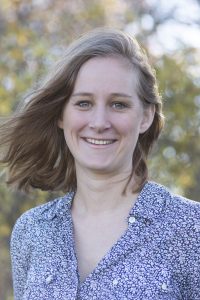2023-24 Sustainability Graduate Fellow Katrina Schweikert
 Katrina Schweikert
Katrina Schweikert
Degree Program: Spatial Information Science and Engineering PhD
Advisor: Torsten Hahmann
What problem/s are you working to solve?
I work on building information systems and tools that can combine complex data from large systems, including quantitative, qualitative, spatial, and temporal information. Integrating data from disparate sources into organized structures combined with logical inference tools can create intelligent systems that learn directly from reliable data sources to provide new insights into complex problems. This is a form of AI that doesn’t suffer from the hallucination problems of current popular methods. I am especially interested in applying this type of knowledge infrastructure (specifically geospatial knowledge graphs) to complex global problems like environmental contamination, natural disasters, global resource distribution and other facets of climate change and environmental justice. And I am interested in combining these methods with machine learning techniques to automate pattern finding and inductive reasoning.
What progress are you making toward solutions?
I currently work on two projects to build tools related to understanding the environmental contamination in Maine and around the U.S. of PFAs chemicals. We are working to combine information from potential or confirmed PFAs pollution sources and test results from food and water sampling with information about crops, soil, hydrology, and other environmental data along with socio-demographics. The goal is to provide tools that can answer questions and reveal patterns about where contamination is occurring, how the testing, regulation and remediation is distributed, and how that overlaps with socio-demographics.
How could your findings contribute to a sustainable future in Maine and beyond?
Our tools will reveal new hypotheses about where environmental contamination of pfas is coming from at a particular location, what crops are highest risk or safest to grow on contaminated fields, where is contamination likely and more testing needs to occur, and a host of other questions about the distribution and pathways of PFAs in the food and water supply. These are important questions for local economies in the US, and for reviving healthy food and water systems.
Why did you get involved with the Mitchell Center Sustainability Graduate Fellowship Program?
I came back to school to obtain a stronger background in computing and though my interests lie in applications of technology for sustainability issues, I don’t get much of a chance to talk and think about sustainability in my coursework. As an information scientist I am also regularly relying on domain expertise to understand many of the nuances and foundational knowledge implicit in information. This current project requires me to understand a lot about geology, hydrology, soil science, chemistry and how these systems are regulated, tracked and tested by local and federal government. With the Mitchell Center Fellowship I am making new connections and collaborations that can help bring me up to speed in a variety of these topics.
Where do you hope to be in five years?
I would really like to do applied research. I would like to build computer systems that have practical applications to solve our most pressing issues, and to analyze the results and the data. I don’t know yet whether that will be in academia, public or private sector.
What’s your ultimate Maine experience?
- Stargazing in Baxter or any of the other awesome remote parks and preserves after a day of hiking.
- Scaling the granite cliffs with a view of the ocean.
- Window shopping with a hot coffee and pastry in a quaint coastal town.
